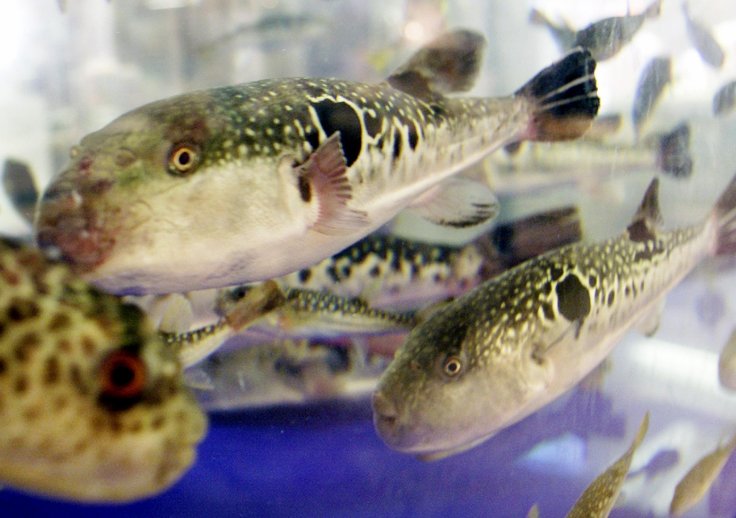
The central Japanese city of Gamagori is on high alert after a supermarket sold five packages of fugu fish, also known as puffer fish, without removing the livers, which contain lethal poison. The city is on warpath now using its wireless loudspeakers installed in different parts to warn residents to avoid eating fugu.
Fugu's poison can have horrible effects on human beings. If consumes, the victim is likely to have breathing problems and ultimately die of asphyxiation. What is worse is that there is no known antidote for this poison, which is scientifically known as tetrodotoxin. Thus, Fugu has become one of the most celebrated and notorious dishes in Japanese cuisine and only chefs who have gone through three or more years of rigorous training and qualified are allowed to prepare the fish.
In this case, according to, local official Koji Takayanagi, while three of this lethal food items have been located and will be retrieved today, authorities still have no clue about the rest two.
Officials are using the city's wireless loudspeakers installed in different parts, to warn residents and asking them to avoid eating fugu. Otherwise, these loudspeakers are meant to warn before earthquakes or air attacks.
Also known as blowfish, fugu is so poisonous that the smallest mistake in its preparation could be fatal, especially its liver and intestines, which are believed to be 200 times more deadly than cyanide. A single mistake could mean death for the guest. The restaurants that serve it are almost an exclusive club in Japan.
Priced more than $120 per meal, people usually go for the delicacy only when the chef is well-known and licensed by the Japanese government.
The first known reference to fugu fish was recorded in the logs of Captain Cook in 1774, after some of his crew members ate the fish and died. In Japan, 23 people have died after eating fugu fish since 2000, according to government figures.
In olden days of Japan, a chef would be honour-bound to commit harakiri (suicide with his fish knife), if he killed a customer, but now the penalty is in the form of loss of his licence, a fine, trial and prison.
Otherwise, fugu fish is a seasonal dish, eaten in winter, the way unagi or eel is considered a summer dish. Recently, the fugu fish made headlines after it was announced that Japanese government is aiming to promote the export of the product and expects to raise the export value of agricultural, forestry and fishery products to ¥1 trillion (S$0.02 trillion) by the end of 2019.









